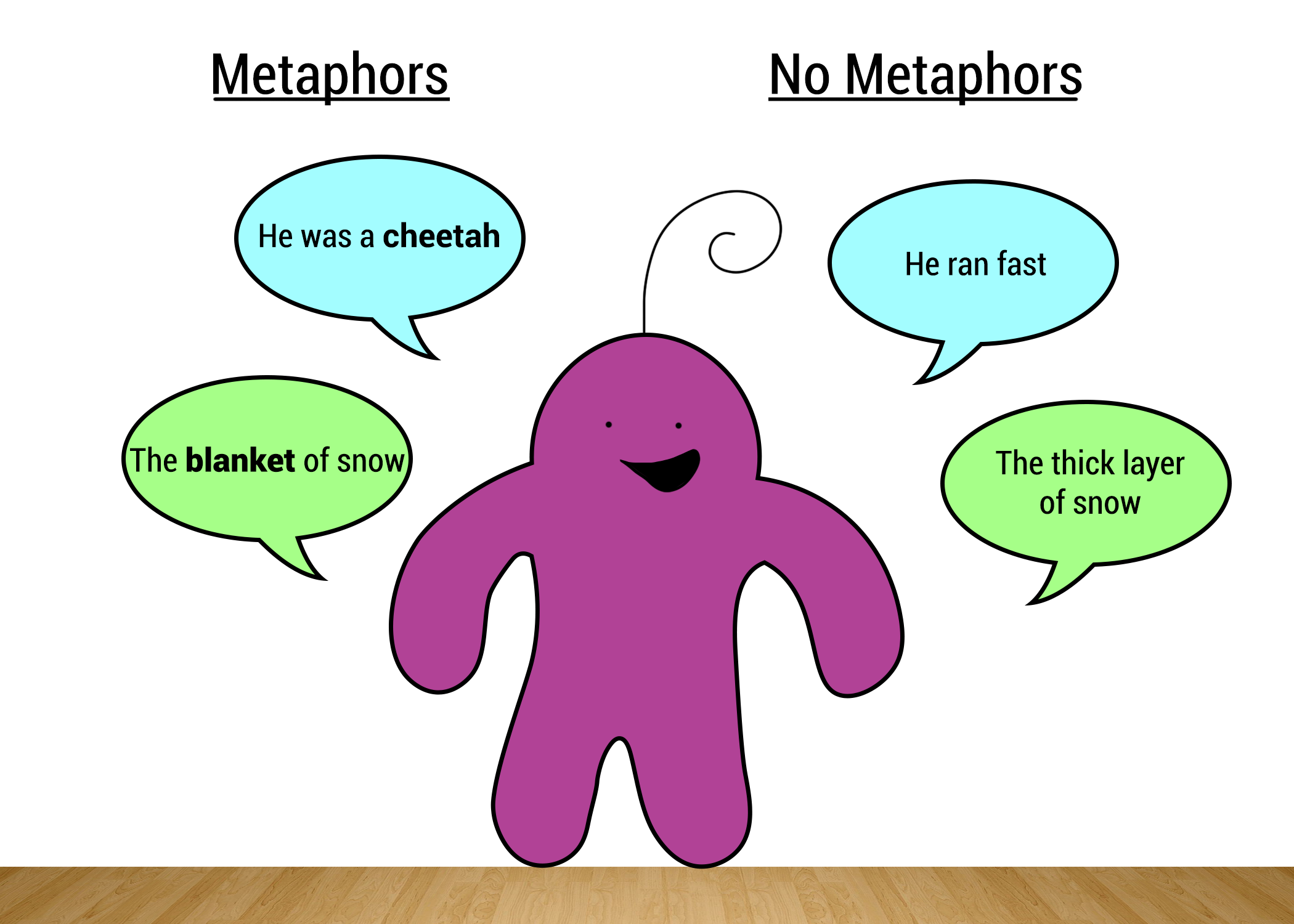Quick! What do all of the following sentences have in common?
“You’re wasting my time.”
“Life is a highway.”
“That broke his heart.”
If you said that all of them are metaphors, then congratulations, you’re correct!
You may or may not have heard of metaphors before in school. Even if you know what they are, here is a refresher: Metaphors are, simply, a way to describe one thing by saying that it is something else. (For example, saying that someone “is a cheetah” in order to communicate the idea that they are “extremely fast”.) However, even though in school you may have usually learned metaphors as being used for nouns, they may also describe verbs- and often are, many times without you even realizing it.
You might be thinking, Well, don’t you really only find metaphors in poetry? Well, actually, metaphors are extremely common in everyday speech! According to some estimates, we use one about every 25 words! In many cases in English, an individual may even be at a loss for a simple way to describe an idea without using a metaphor. Take for example, the phrase “breaking someone’s heart”. You cannot literally break someone’s heart! Now, what is another way that you might put it? Maybe you would think of the phrase “hurting someone’s feelings”. Great! That can’t be a metaphor too, can it? Well, you can use that phrase instead…except that you can’t literally hurt someone’s feelings either. Both of these phrases, “breaking someone’s heart” and “hurting someone’s feelings”, are metaphors!
You may be wondering why metaphors are important in speeches. The main reason is persuasion. You can influence people’s opinion, and even their decisions with only slight changes to your choice of metaphor. For example, if you want your audience to avoid something, compare it to something “bad”, like garbage or cockroaches. (Ex: “Don’t listen to those bad ideas.” Vs “Don’t listen to that garbage.”) If you want them to like something, compare it to something “good”, like angels or honey. (Ex: He is a very good person. Vs He is an angel.)
You can also use metaphors to vividly describe something. For example, take the sentence “That math problem made my head spin!”. This metaphor of your head spinning is vividly describing the complexity of the math problem- it isn’t literally communicating that your head spun!
In summary, metaphors are powerful persuasive, informative, and entertaining tools that are available just by looking around you! You can get inspiration for metaphors to use when you speak from all kinds of places. Here are some of my favorite famous metaphors.
-
“All the world’s a stage, and all the men and women merely players.”- William Shakespeare
-
“Art washes away from the soul the dust of everyday life.” -Pablo Picasso
-
“Chaos is a Friend of Mine.” -Bob Dylan
-
“Failure is the condiment that gives success its flavor.” -Truman Capote
-
“Books are the mirrors of the soul.” -Virginia Woolf
-
“You ain’t nothing but a hound dog…” -Elvis Presley (“Hound Dog”)
-
“Conscience is a man’s compass.” -Vincent Van Gogh
“‘Cause baby, you’re a firework…” -Katy Perry (“Firework”)




